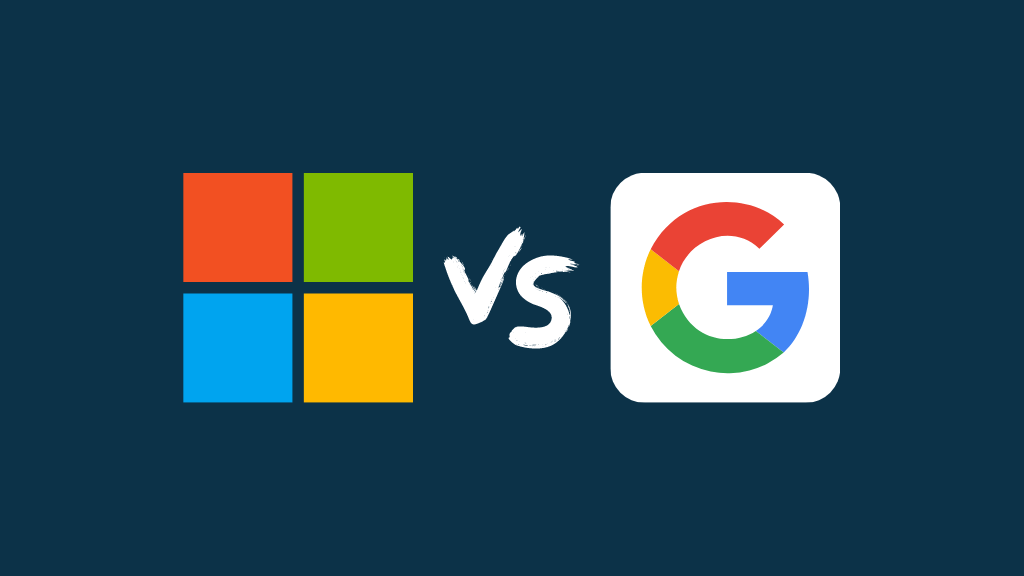Microsoft and Google, two tech giants at the forefront of artificial intelligence (AI) development, have recently made significant investments in two highly valuable AI companies. OpenAI, the creator of ChatGPT, secured an astonishing investment of £7.8 billion ($10 billion) from Microsoft, while Google poured $300 million into Anthropic.
This surge of financial support for AI ventures has thrust the ongoing rivalry between Google and Microsoft into the public eye, particularly in discussions surrounding the future success of AI.
Google has long been hailed for its remarkable contributions to AI research and development. The company introduced transformers, a cutting-edge form of machine learning that allows algorithms to enhance their performance through training on data. Additionally, Google has made strides in automating language translation and acquired the renowned AI company DeepMind.
Despite Google’s consistent positioning as a frontrunner in AI, the introduction of ChatGPT marked a significant milestone. OpenAI, based in California, unveiled ChatGPT in November 2022, followed by an even more advanced version called GPT-4 in February 2023.
The arrival of ChatGPT sparked widespread discussions about artificial general intelligence (AGI), the concept of machines surpassing human intellect. These discussions were further amplified by warnings from Geoffrey Hinton, a prominent figure in AI, who expressed concerns about the technology after resigning from Google earlier this year.
Consequently, there has been a surge in research papers focusing on large language models (LLMs) like ChatGPT, potentially overshadowing other areas of AI research such as dialogue systems and information retrieval.
Amidst this rapid technological disruption, Google appears to fear losing its technological edge and market dominance.
A Contradictory Position?
Google’s concerns are not unfounded. ChatGPT, developed by a direct competitor, has successfully capitalized on Google’s pioneering internet search techniques, generating significant profits. Moreover, the talent flow from Google to OpenAI, coupled with the latter’s rapid growth, has become a worrisome trend for the search giant.
OpenAI was originally founded on the principle of creating “open source” software, which encourages public availability and allows developers to share and modify it. In contrast, Google has maintained a consistent commercial approach to its plans and ambitions.
However, OpenAI’s recent shift towards commercialism and closed-source practices seems to contradict its original corporate philosophy.
Industry insiders have criticized OpenAI for this seemingly contradictory stance. While the company presents itself as a champion of open-source AI, it undeniably operates as a commercial entity, a fact it does not readily acknowledge.
This tension between OpenAI’s public image and business realities has made the rivalry with Google all the more intriguing.
One likely outcome of this competition is the continued evolution and refinement of AI technology driven by the need to stay ahead in the market. Google’s techniques, once leveraged by OpenAI for commercial gain, will likely undergo further innovation.
This evolution will not only enhance the functionality of AI applications but also greatly improve user experiences.
Yusuf Mehdi, the corporate vice president at Microsoft, recently indicated that the company did not feel the need to revolutionize the search landscape since even a mere one-point increase in market share equated to a staggering $2 billion rise in value. This strategic downsizing of ambitions could be an attempt to alleviate competitive pressures in the tech industry.
Heightened Scrutiny Required
It is worth noting that Microsoft’s association with OpenAI adds another layer to this complex rivalry. Google, too, has shown a willingness to invest in external AI projects as a means to extend its influence.
For instance, Google’s investment in Anthropic, an AI research company, reflects its strategy to maintain technological leadership through strategic partnerships.
One pressing concern, shared by many including myself, is the potential for misinformation, disinformation, and manipulation facilitated by ChatGPT. With over 200 million users, it reaches approximately 2.53% of the global population.
The widespread dissemination of disinformation on social media has significantly eroded trust in online content and has reportedly influenced the 2016 US presidential election.
Given ChatGPT’s vast user base, it is conceivable that tech companies could subtly manipulate conversations, swaying users’ preferences and decisions in numerous ways. Consequently, there is an increasingly urgent need for stronger scrutiny and regulation of these large language models.
Despite the intensifying competition in the realm of AI, Google remains a respected entity within the global tech industry. The AI rivalry between Google and Microsoft has driven both companies to push the boundaries of this technology, promising exciting advancements in the years to come.
The various strategies employed in this competition, from talent acquisition to strategic investments, underscore the significance of the stakes in the AI landscape. Acquiring top talent allows these companies to advance their AI capabilities, gaining a competitive edge.
Simultaneously, strategic investments enable diversification and expansion into new AI applications and sectors, increasing their influence and market share in the AI field. These actions highlight the immense value and potential of AI technology in shaping our future.


